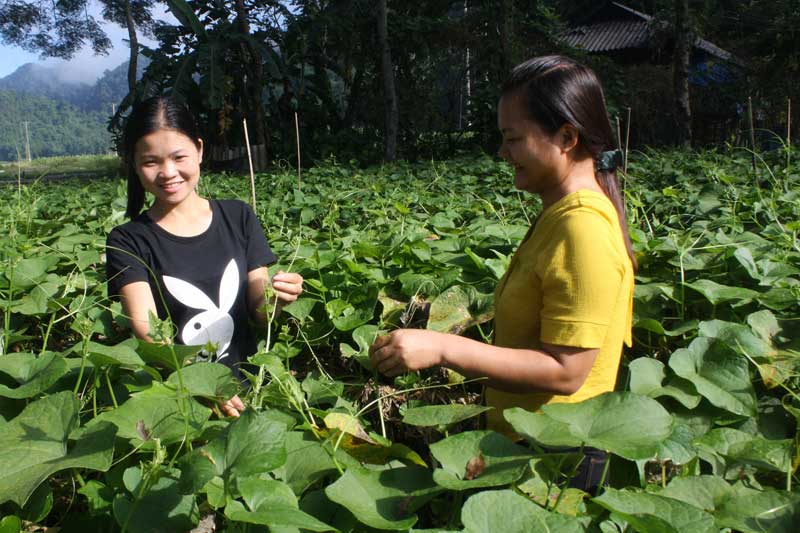
(HBO) – Smoother roads, busy trading activities and services, and prosperous villages with better economic conditions were our impression as we visited mountainous areas in Tan Lac in early Autumn when locals were busy preparing for the National Day festival.
In the summer-autumn crop this year,
farmers in mountainous communes of Tan Lac enjoyed bumper rice, maze and
chayote harvests. Their rice production was estimated at 0.56 tonne per
hectare. Maze farms, mostly in Quyet Chien, Lung Van, Ngo Luong and Bac Son
communes, also produced 0.55 tonne per hectares.
Chayote hub Quyet Chien, thanks to the
reform of cultivation technique and the application of VietGap standards, as
well as the formation of a cooperative, has developed its trademark and created
a sustainable agricultural value chain.
Tan Lac chayote vines have been put on
sale at big markets, and accessed restaurants and supermarkets in Hanoi and
some other provinces and cities. Therefore, economic conditions in Tan Lac have
been improved, increasing locals’ income and raising their living conditions,
especially among ethnic minority groups.

Farmers in Bieng village of Quyet Tien
commune in Tan Lac enjoy a bumper chayote crop with high prices
Improvement in infrastructure, health
care, socio-cultural system as well as stable security and order in mountainous
communes was another positive sign of the area. Statistics from the district’s
Office of Ethnic Affairs show that in 2017, 35 infrastructure works and
projects were built in the area at a cost of 17 billion VND, along with 19
other projects to assist the production with a total investment of nearly 3.5
billion VND.
In 2018, the district proposed to the
provincial People’s Committee 25 infrastructure projects with a total capital
of nearly 20 billion VND.
Efforts of mountainous communes in Tan Lac
in maintaining political security and social safety and order have been
recognised, as there were no complicated cases related to land conflicts,
compensation and ground clearance. The movement of community-based national
security protection has proved efficient, along with models of order-security self-management
in localities.
In Lac Thuy district, communes have been succeeded in promoting their One Commune-One Product (OCOP) products while others are still struggling to position their typical farming products in market. Some communes in the district still fail to have their products met OCOP programme’s requirements, while others have seen their certifications expired.
The inspectorate agency of Hoa Binh province has issued Official Dispatch No. 1090/TTr-PCTN to provincial departments, agencies, localities, business associations, enterprises, and investors regarding measures to improve informal component indexes of the Provincial Competitiveness Index (PCI).
Hoa Binh is taking concrete steps to improve its investment environment, with a strong focus on supporting businesses, settling obstacles for strategic investors, and creating opportunities for robust development in the coming years.
Under the blazing early summer sun, the construction site of Nhuan Trach Industrial Park (IP) in Luong Son district is abuzz with activities from dawn to dusk, a testament to the determination of the investor to meet their construction targets on schedule.



